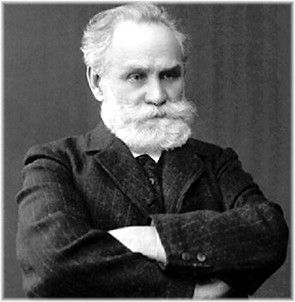Classical conditioning is a reflexive or automatic type of learning in which a stimulus acquires the capacity to evoke a response that was originally evoked by another stimulus.
Originators and Key Contributors: First described by Ivan Pavlov (1849-1936), Russian physiologist, in 1903, and studied in infants by John B. Watson (1878-1958).
Pavlov's experiment



Summary
• Classical conditioning occurs when a previously neutral stimulus causes a reflex.
• Ivan Pavlov is most famous for his work on dogs and classical conditioning.
• The unconditioned stimulus causes an automatic reflex response without prior learning (e.g. food in mouth causes salivation).
• The conditioned stimulus is created by learning, whereby a stimulus becomes associated with something else (e.g. dog associates bell with food, and ringing bell causes dog to salivate).
• The unconditioned reflex is a reflex that happens automatically (e.g. salivation is an unconditioned reflex, because it happens automatically when you put food in your mouth).
• The conditioned reflex is a learnt response pattern (e.g. dog salivating to sound of bell).
• Conditioning takes place automatically and without you having to think about it, and the conditioned reflexes are involuntary.
• Extinction occurs when you unlearn something, such as unlearning that the bell means food and no longer salivating in response to it.
• Stimulus Generalisation occurs when a new but similar stimulus to your original conditioned stimulus, still results in the conditioned reflex (e.g. similar sounding bell still makes dogs salivate).
• Discrimination occurs when a new stimulus is too dissimilar from your original conditioned stimulus to cause the conditioned reflex (e.g. different sounding bell no longer makes dogs salivate).
Sources:
Ref: http://www.eruptingmind.com/pavlov-classical-conditioning-theory/
http://www.learning-theories.com/

No comments:
Post a Comment